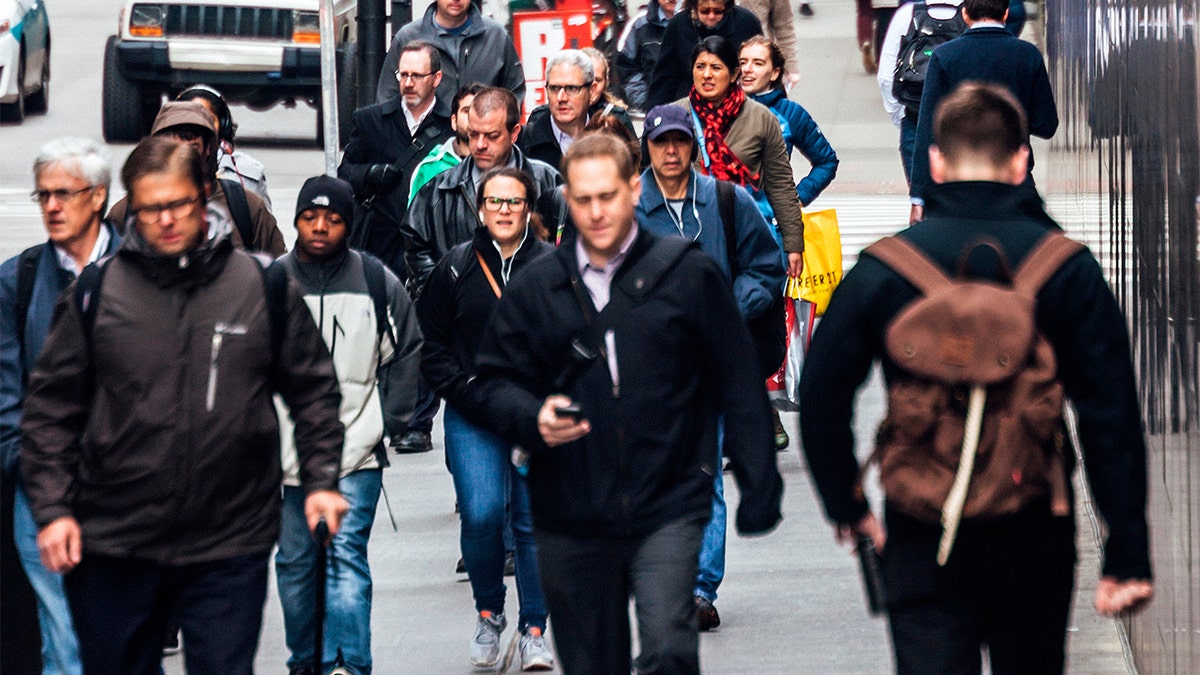NEWYou can now listen to Fox News articles!
Police in Chicago, Illinois, are urging residents to be cautious after a slew of violent robberies targeting mainly drunk individuals in the city’s River North neighborhood.
According to FOX 32, at least four incidents have taken place between June 16 and July 6, with one to three African American males beating and robbing people.
The men befriended people who appeared to be intoxicated before stealing their property and beating them, police said. The robberies occurred during the early morning hours when bars and restaurants were closing.
One of the individuals robbed, Tori Ledzema, told FOX 32 she was forcibly pushed to the ground by four individuals in ski masks while she was headed to Pilates at 5:30 a.m. She said the men attempted to gain access to her phone.
CINCINNATI BUSINESS OWNERS SLAM VIRAL ‘OUT OF CONTROL’ BEATING AMID FIGHT TO CLEAN UP DOWNTOWN

Chicago police are warning people about recent robberies in the city. (Getty Images/Tunart)
“If they can hold the phone up to your face, if they can beat you until you give them passcodes, they will go in and transfer money.”
Ledzema said she had a gun aimed at her head during the robbery and suffered a sprained neck.
“He threw me to the ground. Later found out I sprained my neck from this impact. But the four of them pulled me back up, and they held the gun to my head,” Ledzema said. “There were three guns. They held one to me and then one in either direction of traffic. Not that there really was traffic, and then the driver stayed in the car. But they held the gun to my head and asked me for my password, and then I later found out that this group was looking for people’s Cash App. Which is one of the other things they asked me for.”

People walking in the streets of Chicago’s River North neighborhood. (Getty Images/Peeterv)
Police tracked down the car used by the suspects and got fingerprints. No arrests have been made.
CHICAGO’S BLOODY JULY FOURTH WEEKEND LEAVES 55 SHOT, 6 DEAD: REPORT
Former FBI special agent Jonathan Gilliam told Fox News Digital in an interview that the suspects wanted one thing: access to the victim’s phone.

Criminals are targeting people in Chicago for access to their phones, one expert said. (iStock)
“But this is what it really all comes down to, is the phones. We do most of our banking on the phones, people don’t carry as much cash anymore,” Gilliam said. “So what they’re doing, and in particular, this is where it has evolved, in particular the female that was going to Pilates. They were asking for her Cash App. They wanted to get in her Cash App and get money that way. So this is something that people have to understand is that they may not be going after cash. They may be going after your apps and how to get into your apps.”
CLICK HERE TO GET THE FOX NEWS APP
“If they can hold the phone up to your face, if they can beat you until you give them passcodes, they will go in and transfer money,” he said.

